"Conversation" Fate is like a dream bubble, and dreams come back to life in the play: Interview with Qiu Zuyin and Ding Mingqing about "Empty Smile Dream" feat. Cui Shunhua
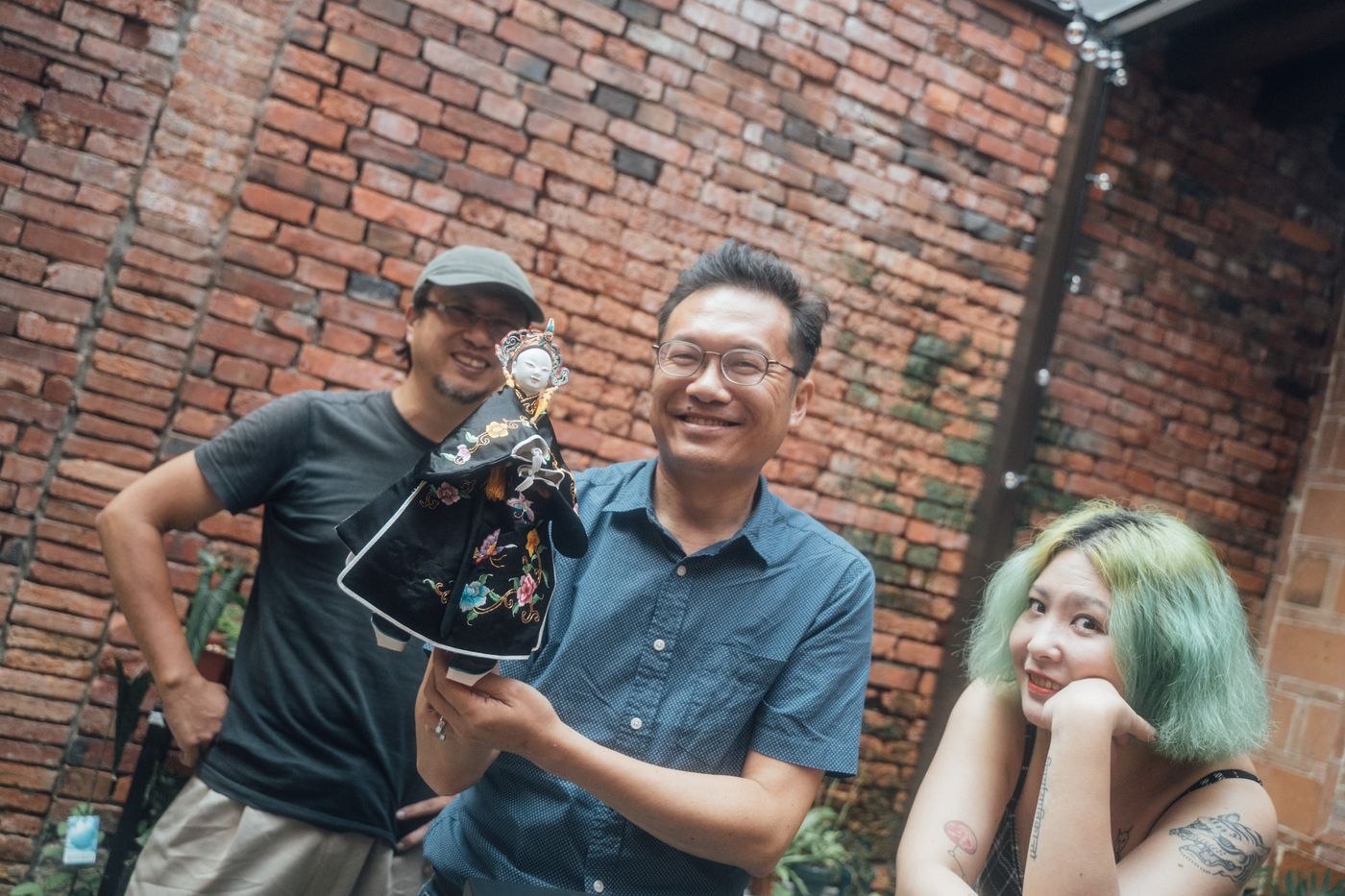
Written | Cui Shunhua (Poet) Photography | Tang Zuoxin
➤ Trance and trance on the editing desk
In "Empty Laughter Dream", the state of "doll unity" between the puppet and the puppet is often described. It is also like the mother of the protagonist Jian Tiankuo, Cui Yehe, who said: People are geezers, and geezers are people. This state of concentration, immersion, and trance makes people wonder whether it will also appear in the state of concentration in daily work? For example, are there similar mysterious moments on and off the field at the editing desk?
Qiu Zuyin, who was a journalist, finally became a senior reporter, and then turned into a newspaper office and sat on the editor's desk. The newspaper had to be published every day. The huge anxiety and pressure made him even have a nightmare. He dreamed that a typo appeared on the page. When he woke up, In the middle of the night, I ran to report to the company for proofreading. The amazing thing was that there was a typo in front of me.
For editors, typos are an eternal nightmare. After that, Qiu Zuyin took over the editorial duties of the supplement. "The supplement is more literary, and the chance of being invited by the editor-in-chief is also relatively high, especially the "Ukiyo-e" column, which actually accepts a lot of submissions. , and the editor must have a keen sense of smell for the text. If you see excellent and good works, it is really incredible. Everyone in the office circulates it to each other, which means that the text is shared. At such a moment, as an editor, the bottom of my heart is It's very trembling." Qiu Zuyin said.
Ding Mingqing said that staying on the editing desk for many years will indeed accumulate and create some mysterious moments. "The advantage of editing work is that you can be deeply immersed in the subject matter. Because you often have to get in touch with people at work, you need to keep a calm distance. No matter if you are in a trance or in a trance, such magical moments are hard to come by," he said. For example, taking a magazine as an example, it is completely different from writing a book. When writing a book, maybe because you really love the work, you will also cultivate a tacit understanding between the editor and the author. The fun of doing a magazine is to be able to witness the accumulated experience of the editor, especially in the planning stage, not only to dig deeper from each structure, but also to come up with ideas and find more interesting presentation methods with the help of colleagues. "When the people are right and the things are right, a brief, mysterious moment of ecstasy can be created."
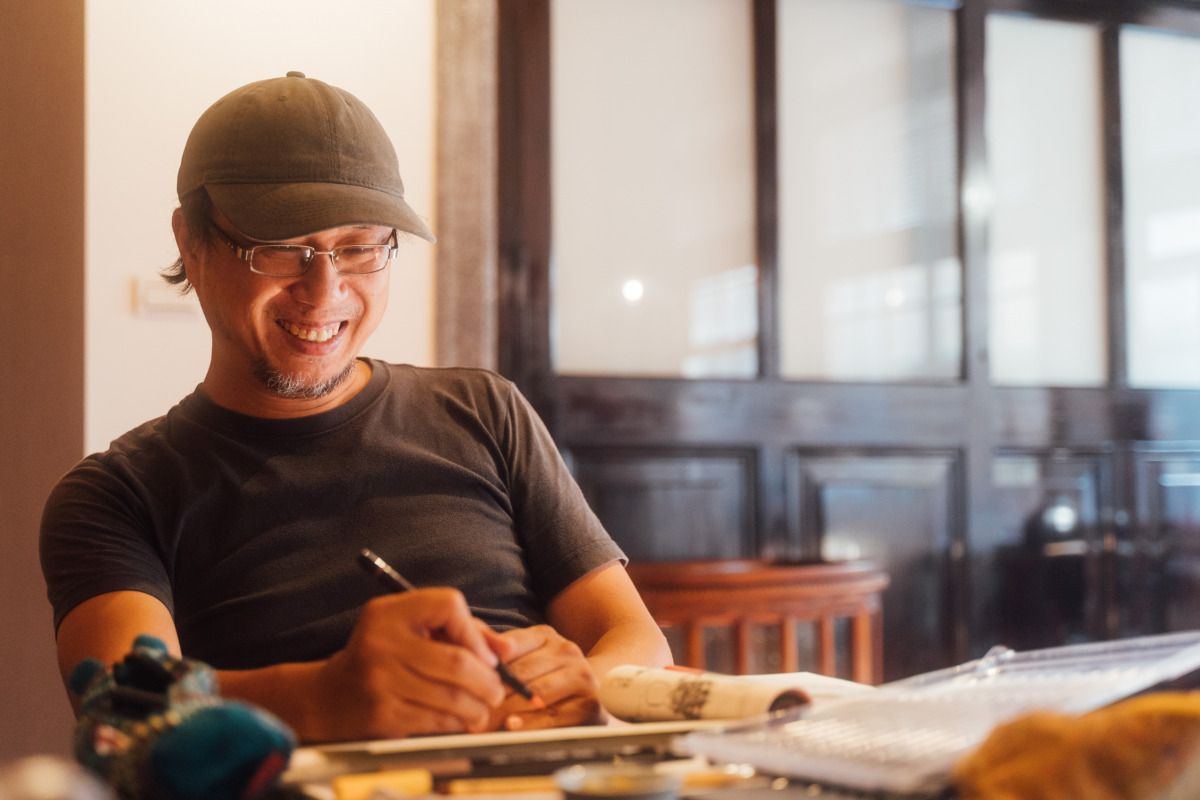
When asked further, how would he want to present the essence of the novel if he was an editor majoring in planning a magazine topic with "Empty Smile Dream" as the main axis, Ding Mingqing replied that, in fact, magazines have a more open space than books. Assuming that it is a humanities magazine, you can interview novelists, live old artists, and even go to Wuzhou Garden, the representative troupe of the Golden Light Opera, for interviews, and even plan a three-day and two-night workshop to invite creators from different generations. Sharing the table with the young inheritors of palm opera, starting a cross-disciplinary dialogue, letting the master tell the opera for the writers, and letting the writers read the story, it is possible to create a new stage of puppet opera. From this process, traditional skills and the expressions of the new generation will also be discussed. In addition, the workshop will promote human-to-human interaction. Readers will be able to watch the artist's favorite puppets and gain a deeper understanding of the stage. after the work site.
Qiu Zuyin said that such a special project will touch the imagination of different generations of puppetry. For example, "Mao Po Dou Shiquan" mentioned in "Empty Smile Dream" refers to the most famous Nanguan puppet show in Taipei. The story of the two (two groups of troupes) fighting each other with "Jin Quantong" Beard Quan (Tong Quan) and "Dragon Phoenix Pavilion" Cat Po (Chen Po). "During the Japanese Occupation, the struggle between opera troupes was very exciting, and the relationship between puppet opera and Taiwanese people was intimate and intimate, but with the transfer of the regime, the passage of time, and the emergence of TV sound and light entertainment, everyone seemed to be All of a sudden, the traditional hand-in-hand opera was forgotten, and the traditional puppet show gradually lost its stage.”
➤ The exquisite realm of "chasing the wind with empty hands" and "contemplating trance"
Regarding the two supreme and wonderful skills of palm-playing, "chasing the wind with empty hands" and "contemplation", which appeared repeatedly in "Empty Laughing Dream", teach us to wonder if there is a source of reference to religion? Otherwise, how could there be such a wonderful skill in the novel that is widely circulated among the people?
"Actually, it's hard to say whether it was specifically influenced by religion." Qiu Zuyin said that he happened to see the movie preview of "Red Box" at that time - Chen Xihuang (the eldest son of Li Tianlu), an old art teacher in his 80s, showed himself empty-handed, showed some basic gestures, and then Taking advantage of the situation, these pictures greatly touched him, so he had the inspiration of "chasing the wind with bare hands" and "contemplation and trance".
"In order to write a novel, I followed Master Chen Xihuang for two years. First, I went to his house to ask for help, and then I went to the Mengka Xuanyin Club to observe the performance. This made me more convinced that the spirit of Taiwan's puppet show is these two sentences- —Perhaps also influenced by martial arts novels, but what I mainly want to express is the relationship between hands and puppets, drama and people, so I set the tone of these two sentences that are similar to the secrets of martial arts.”
Qiu Zuyin's remarks come from many Buddhist scriptures that talk about emptiness, or various appearances and lusts, but it is one thing to understand the truth, and it is another to confirm it in life. The language is definitely vaguely influenced by Buddhism. "To be proficient in a craft, you must overcome many difficulties in mental and technical skills. When an artist learns Taoism, leaves a teacher until his later years, the life experience during the period will definitely affect the performance, and the drama also echoes the life course."
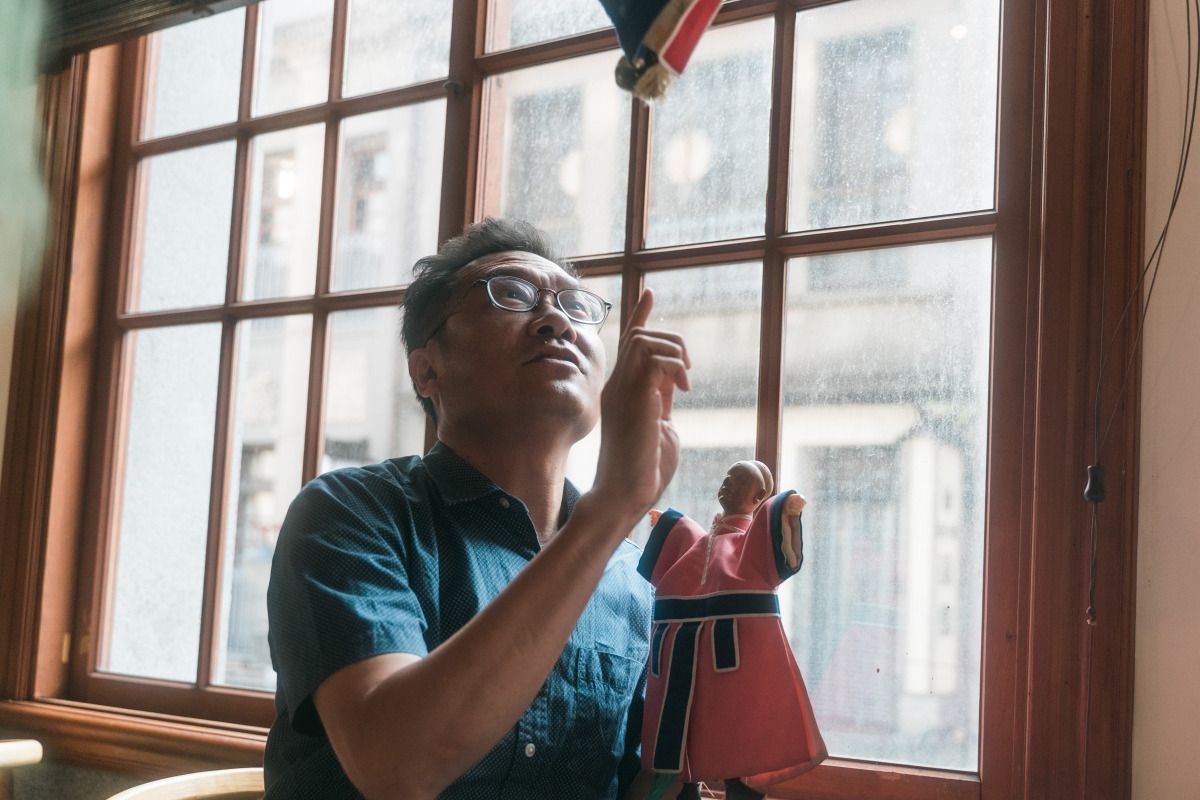
➤The intersection and intersection of creation and work
We are also senior editors, who have been rolling around in the text pile, staying up late, and digging their hearts and livers for many years. Between work and creation, between public space and private life, we guess that there should be conflicts and contradictions. Is there some kind of delicate balance?
In this regard, Qiu Zuyin said that when he focuses on creation, he will try to avoid works with a strong reading style to avoid being influenced by it, but his work has little influence. "Life's experience will make my creation more mature. 10 years ago, I couldn't write a novel like "Empty Smile Dream", but now that I am approaching my sixtieth year, I have the ability to use the experience accumulated over time to step by step. So, the work experience of the editing desk or news reporter, as well as various experiences in family life and reality, are all plus points for writing.”
Ding Mingqing said to himself that he is more interested in travel than creation. For him, travel is a state transition away from the daily environment, "I hardly have any fixed travel plans, and I leave when I think of a destination. , don’t do any homework on the ground, and try to open yourself up during the journey. Just like this, it is very different from work and daily life, and I really hope to bring the energy accumulated by travel back to the workplace.”
Ding Mingqing said that when he was about 30 years old, he really hoped to have full time to write well, but he was always exhausted by trivial things. After a while, he found that: in fact, he had nothing to express, so he did not care about it and had to distinguish it. Work and writing are not allowed. "Through travel and reading, I can feel a certain gift of time. Today's editorial position takes on too much work beyond the duty. An editor may have to be printing, marketing, liaison and even part of the art editor. I In the end, I still have to adjust my mentality and try to keep the space for gaining energy.”
➤Image language, language image
The two senior editors are actually brilliant painters, each with their own unique style of painting. At that time, Qiu Zuyin, who failed to be admitted to the Department of Fine Arts of Normal University as he wished, after seeing the performance of the majors such as Fuxing Art, realized that painting as a hobby and painting as a profession are two completely different things.
"I think I'm still at the stage of enjoying myself, but when I was writing, I found that drawing is actually very helpful for writing novels! For example, I would draw the clear appearance of the characters, and even sketched on the spot, and put the scene on the spot. In order to implement the imagination more precisely, and let the words convey more specific intentions. Through painting, in addition to accurately conveying the image and spirit of the characters, it can even help me adjust the rhythm of writing.”
For Ding Mingqing, the original intention of painting began in childhood to pass away the fun of boredom. As he grew older, he gradually realized that painting is a way to illustrate the world. "I'm still used to grabbing a blank sheet of paper to do graffiti when I'm not in a spare time, but I've already realized that painting is a language system, and everyone has a system, expressing their thoughts about the outside and self through color and lines. Even if I haven't thought about it yet. To understand the meaning or aesthetics of painting, but at this stage, painting is more suitable for me than writing.”
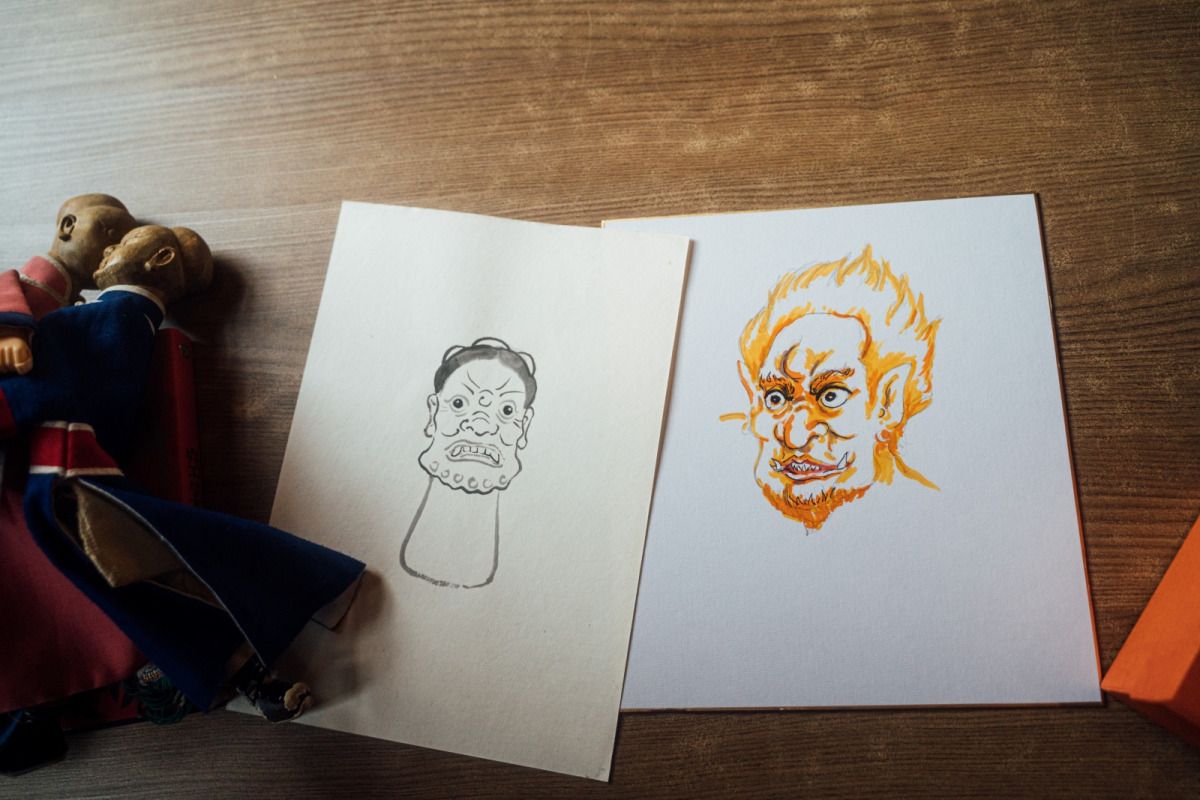
➤Personal favorite novel casting
"Empty Laughing Dream" adopts the narrative structure of characterization. People are like puppets, and puppets are like people. When it comes to the most selfishly preferred characters, there may be endless permutations and combinations, but Qiu Zuyin and Ding Mingqing each have a fairly certain choice. Libra's Qiu Zuyin said, perhaps because of the constellation, he relied on form and format, and strived to balance, and the most difficult part of characterization was to connect the story of the protagonist with smooth clues. Later, he painted symbolic characters by painting. The puppet, solved the difficulty.
"I hope that every character in the novel is alive, and when I encountered a bottleneck in writing and writing, I tried to draw the characters. Later, I found that I should draw puppets instead of realism. For example, the garden puppets in Quanzhou Opera are really ingenious. The puppets imported into Taiwan in the early days were mainly from Quanzhou and Zhangzhou. At the end of the Qing Dynasty, the Quanzhou sculptor Jiang Jiazao was known as the "Father of Puppets" because of his exquisite carvings. I love it, and since then it has set the tone for the character foundation of the puppet show, and it has also become the source of inspiration for me.”
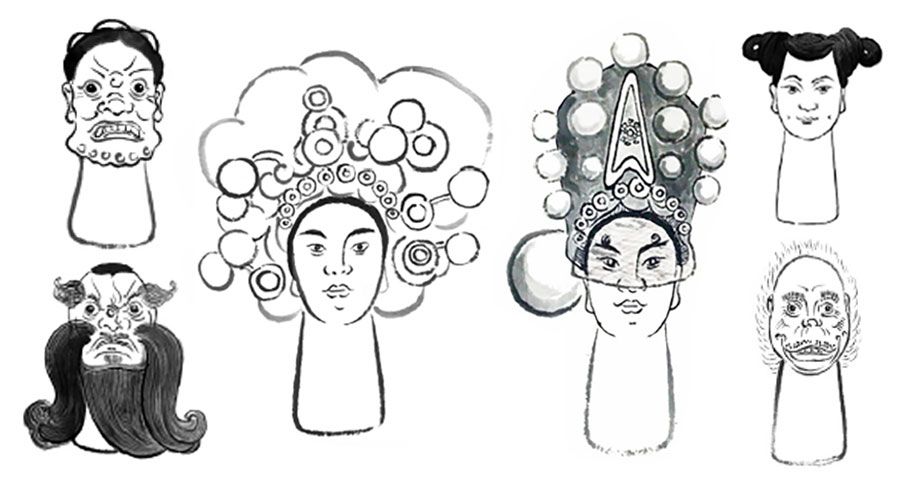
As for the novelist's favorite character, Qiu Zuyin said that it was Jian Tiankuo's little uncle Huang Zaitian. "First of all, he is the key to helping Jian Tiankuo's family reunite, and he is also the driving force that pushes puppet dramas to golden light dramas; secondly, he has the rough character of a storyteller. If you tell a reader about history, the reader will be distracted, but everyone likes to watch it. A heroic story, but Jian Tiankuo is not a standard hero, so when the little uncle appeared, the heroic spirit made people feel very good."
Ding Mingqing said that he is more concerned with the fetters of each character, but if he had to choose, he chose the protagonist's father Zhong Wenqi and the lack of mouth teacher Cai Yuefei. "The 'Quezui Shi' symbolizes the phenomenon of going back and forth between me and the non-self. He makes his 'self' to the extreme, which is a precious quality that literary artists often lack. Next, it is Jian Tiankuo's father, "The Beggar Teacher" Zhong Wenqi , he can't become the nominal father of the protagonist in his life, but he sees everything without breaking it, this powerful understanding is an important support for the protagonist and readers."
As for the title of the novel, "Empty Smile Dream" instead of "Golden Tower", where the protagonist was born, is there any other meaning? Qiu Zuyin's answer was unexpectedly simple, ""Empty Smile Dream" is Cai Zhennan's representative song, and this song is very suitable for the tonality of the puppet show. In addition, I think this novel is also a re-examination of self-life is so complicated, Full of contradictions and abruptness, life is like a dream, and drama is like life, so the three words "empty laughing dream" can interpret drama dream and life at the same time."
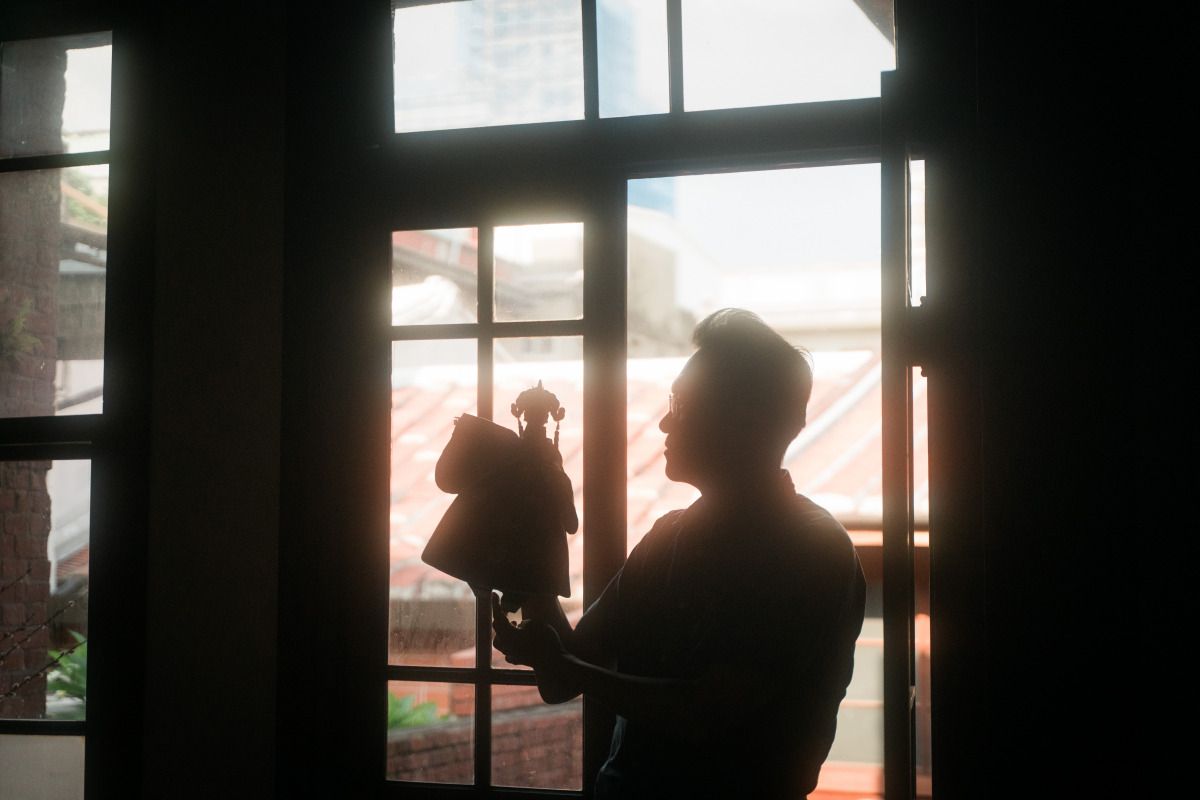
In addition, Qiu Zuyin also talked about Li Tianlu, a master of Taiwan's palm opera. He positioned Li Tianlu as a genius and showed his talent for palm opera at a young age. In his later years, Li Tianlu starred in Hou Hsiao-hsien's "City of Sadness" and "Dream of Life", which made him shine internationally. He is not only an artist, but a real artist.
"A lot of inspiration in "Empty Laughter Dream" actually comes from "Dream of Life", but when it is assumed that the protagonist is a handicapped person, or Li Tianlu who falls down before reaching the peak of his life, how does he get back up? Faced with real life? Even if he once doubted himself and betrayed others, everyone must find their own way in the end, which is the key meaning of this novel.”● ( Original on 2022-09-05 in First published on the official website of Openbook)
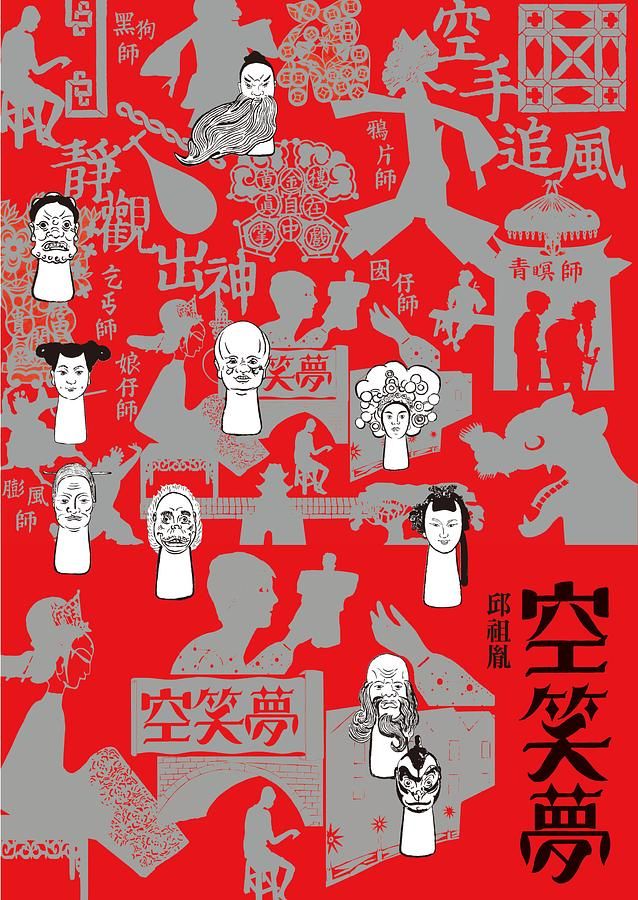
Empty Laughing Dream <br class="smart">Author: Qiu Zuyin Publishing: Yuanliu Publishing
About the Author Qiu Zuyin <br class="smart">Text farmer, father of three children. Born in Shuangxi, New Taipei in 1969, graduated from the Chinese Department of Fu Jen Catholic University. He has won the United Literary Novel Newcomer Award, the novel "Girl Mazu Po" was shortlisted for the Taiwan Literature Golden Award, and "The Beloved Missing Person" was shortlisted for the Taipei Book Fair Award.
Like my work? Don't forget to support and clap, let me know that you are with me on the road of creation. Keep this enthusiasm together!



- Author
- More